MercoPress. South Atlantic News Agency
Economy
-
Thursday, February 29th 2024 - 13:32 UTC
President Milei anticipates decree-based economic reforms, stating Parliament's obstacles
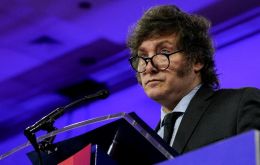
Argentina's President Javier Milei, ahead of his first appearance before the Congress of the Nation for the opening of ordinary sessions, has signaled a proactive approach to economic reform. In an interview with the Financial Times, Milei emphasized his intent to implement reforms “by decree,” citing challenges in garnering parliamentary support due to the current composition.
-
Thursday, February 29th 2024 - 11:40 UTC
EU-Mercosur deal not this year, Peña says
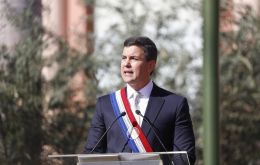
Paraguayan President Santiago Peña, who holds the pro-tempore presidency of the South American Common Market (Mercosur), ruled out Wednesday in Madrid an agreement with the European Union (EU) this year while insisting that his trip to Spain was more to offer than to ask.
-
Thursday, February 29th 2024 - 11:23 UTC
Air industry workers' strike leaves thousands stranded in Argentina

Thousands of air travelers were stranded Wednesday as workers of the Argentine airline industry went on strike for 24 hours in rejection of a 12% wage increase that in no way matches the country's rampant inflation.
-
Thursday, February 29th 2024 - 11:12 UTC
Argentina's Economy Minister meets with Georgieva in Brazil
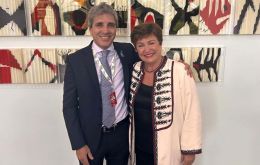
Argentina's Luis 'Toto' Caputo and International Monetary Fund (IMF) Managing Director Kristalina Georgieva met Wednesday in Sao Paulo on the sides of the two-day G20 summit of Economy Ministers. The gathering took place less than a week after the visit to Buenos Aires of the IMF Managing Director Gita Gopinath, with whom Caputo and President Javier Milei discussed a new agreement on the South American country's debt.
-
Wednesday, February 28th 2024 - 17:29 UTC
Brazil promotes manufactured exports with BNDES incentives
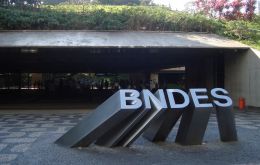
Brazil's Development Bank, BNDES, with a larger annual turnover than the World Bank is propping the country's manufacturing exports with new incentives tailored to support companies engaged in global trade. Under the new conditions the bank is implementing a substantial reduction of up to 60% in the spread of operations within the BNDES Exim Pre-shipment line.
-
Wednesday, February 28th 2024 - 10:35 UTC
Argentina Leading steel producer to cut output due to crisis

Argentine steel producer Acindar will stop output at its four plants in the country between March 18 and April 15 as a result of the country's recession which led to a drop in sales of around 40%, it was announced Tuesday.
-
Tuesday, February 27th 2024 - 10:50 UTC
Caribbean countries: a big player in many crucial areas, IDB says
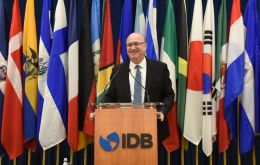
The Inter-American Development Bank (IDB) Group concluded after its XII Annual Consultation meeting with Governors of IDB Caribbean members on Feb. 23 and 24 in Georgetown that the Caribbean might be small in size but is nonetheless a “big player” in many crucial areas, it was reported from the Guyanese capital.
-
Monday, February 26th 2024 - 11:15 UTC
UK businesses begin to feel the squeeze of the Red Sea conflict
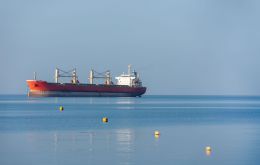
British firms are facing higher shipping costs and delays of up to four weeks due to Houthi attacks in the Red Sea, according to a survey from the British Chamber of Commerce (BCC). More than a third of firms admitted the situation, but the figure rose to more than half among exporters responding to the survey, which the BCC said could lead to higher prices in the UK economy overall.
-
Saturday, February 24th 2024 - 10:24 UTC
Argentina: Chubut Governor threatens to cut oil supply if federal funds are withheld

Chubut Governor Ignacio Torres Friday warned Argentine President Javier Milei that his province would stop exporting oil if the federal administration insisted on “improperly withholding half of the [so-called] co-participation” funding. “If on Tuesday there is no resolution from the courts, we will not export even one more barrel of oil,” threatened Torres, whose stance was endorsed by several fellow governors and also by Buenos Aires Mayor Jorge Macri.
-
Friday, February 23rd 2024 - 10:19 UTC
Milei and IMF envoy discuss additional help for Argentina
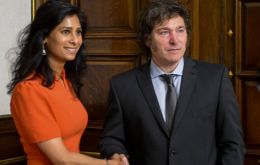
President Javier Milei and International Monetary Fund (IMF) Deputy Managing Director Gita Gopinath Thursday discussed Argentina's course of action under the Libertarian's leadership during a meeting at Casa Rosada, it was reported from Buenos Aires. Gopinath said she had an “excellent and substantive meeting with President Milei on the best way to move the country forward.” Also Thursday, she got together with Cabinet Chief Nicolás Posse and Interior Minister Guillermo Francos.
